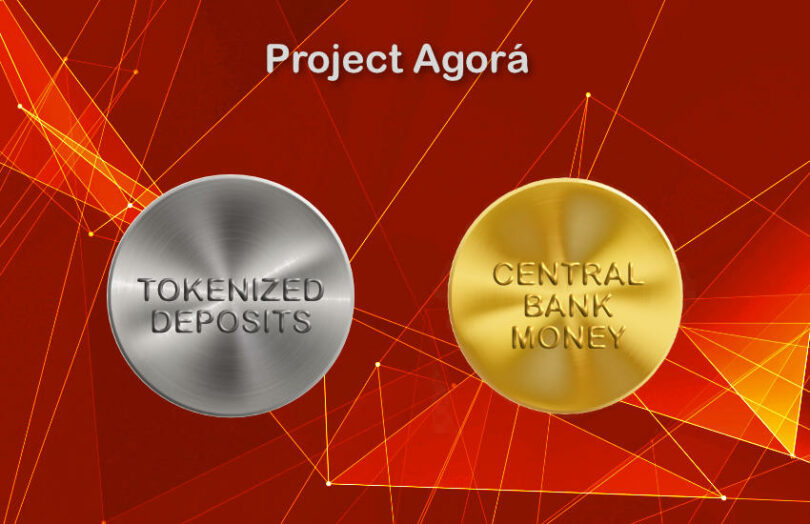Today, the Bank for International Settlements (BIS) Innovation Hub unveiled Project Agorá, a major initiative aiming to tokenize cross border payments. This is the first project in line with its concept of a Unified Ledger. It seeks to unite seven central banks and commercial banks on a shared, programmable infrastructure to facilitate cross-border transactions.
“We believe that tokenization represents the next frontier in the digitalization of money and payments. Agorá stands out as the most ambitious project undertaken by the BIS Innovation Hub to date,” said Cecilia Skingsley, Head of the BIS Innovation Hub. Unlike other BIS Innovation Hub initiatives, which are considered exploratory, this one is on another level.
The project will encompass most of the major currencies, including the USD, Euro, GBP, and Yen. Consequently, the participating central banks are the Bank of France (for the Eurosystem), Bank of Japan, Bank of Korea, Bank of Mexico, Swiss National Bank, Bank of England, and the Federal Reserve Bank of New York.
Project Agorá is envisioned as a public-private partnership. Therefore, a call for private sector participation is imminent, with the Institute of International Finance (IIF) orchestrating the collaboration.
The BIS explains tokenization as the integration of records with the rules and logic governing them through smart contracts. From another perspective, for payments it merges the transaction message with the actual movement of funds. This approach significantly reduces the time and resources spent on back-office reconciliations.
Ledger Insights Research has published a report on bank-issued stablecoins and tokenized deposits featuring more than 70 projects. Find out more here.
Why cross border payments?
The G20 has thoroughly examined the factors contributing to the high costs of cross-border payments, such as the reliance on correspondent banks, compliance expenses, regulatory differences and operating hours.
A press briefing highlighted the potential for compliance cost reductions on a shared infrastructure, where activities like know-your-customer (KYC) and anti-money laundering (AML) checks could be streamlined. As previously demonstrated, the burden of AML compliance is a significant, albeit necessary, expense for banks, suggesting that efficiency gains here could be impactful.
DLT still looks unlikely
While tokenization often goes hand-in-hand with blockchain, central bank involvement implies a preference for a centralized model of consensus to maintain control over payments. Despite this, smart contracts can still operate on a centralized ledger.
So far the BIS has taken the position of focusing on functionality rather than technology. Hyun Song Shin, BIS Head of Research, acknowledged the scalability and interoperability challenges faced by blockchain projects, particularly those on public blockchains. He stressed the proven scalability and effectiveness of the traditional separation between central and commercial banks.
“The objective here is to perfect financial intermediation. We know that that’s scalable, we know that that works,” he said.
“This is the big leap compared to these other blockchain based innovation attempts which are clearly very interesting. But as we wrote about many times in our publications, if you’re trying to achieve settlement through decentralized consensus, that is a very difficult challenge to overcome. This is the reason why we believe this is much more promising as a way to solve real world problems rather than the previous attempts.”
Other cross border CBDC initiatives exist, but the only one nearing production is mBridge, involving the central banks of China, Thailand, Hong Kong, and the UAE. Unlike mBridge, Project Agorá includes the pivotal international currency, the dollar.
Despite the BIS’s view of Project Agorá as beyond mere research, regulatory and political considerations vary by jurisdiction. For example, the New York Innovation Center (NYIC) at the Federal Reserve Bank of New York clarified, “The NYIC’s participation in this project is strictly for research and experimentation.” CBDC is a political hot potato in the United States.






